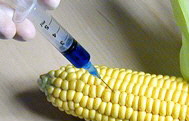Terminology
As science has expanded research and we have gained more knowledge of organics and modifications to our food, the terminology has also expanded to keep up.
Even terminology and definitions have evolved, and new terminologies are being added to further refine the vocabulary used in discussions of organics, plant biology, and genetically modified foods. Although the research and development by big AG must certainly be included in discussion, it is imperative that the terms, definitions, research, and conclusions of non-biased scientific community be rooted out of the mass of data that is available. With that in mind, let’s start with some of the terminologies and briefly define them in simple language. Comprehensive definitions can be fairly complex, but if we have a basic grasp of what everyone is talking about we can make informed choices.
Natural - Food that has undergone a minimum of processing or treatment with preservatives. However, the FDA has not determined an actual definition for food labeling purposes.
Organic - Food grown and produced without artificial chemicals, pesticides, synthetic fertilizer, GMO or radiation. Further, animals are not treated with antibiotics or growth hormones
Hybrid Hybrid plants are developed by the simple human intervention of hand pollinating two compatible plant varieties with the hope that the resulting plant will acquire specific desirable characteristics.
GMO Genetic Modification is accomplished by using technology to manipulate genes of completely unrelated types of organisms that would never cross naturally to create desirable, but unnatural traits.
Genetic Engineering - Maniupulation of DNA by inserting or removing genes.
Bioengineering - Similar to Genetic Engineering, but typically in reference to medicine rather than plant biology.
Gene Editing - Similar to Genetic Engineering, however, Gene Editing targets very spec ific location in a DNA sequence, inserting an unrelated gene.
Food Biotechnology - The modification of genes of plants, animals and microorganisms to create new species with specific desirable traits benefiting food production, storage and marketing or nutrition.
Agriculture Biotechnology - Modification of genes that specifically increase agricultural production.
Synthetic Biology - The engineering of DNA to create something entirely new. Currently used primarily in medicine.
CRISPR Clustered Regulatory Interspaced Short Palindromic Repeats - A new means of gene editing with a much higher degree of precision than previously possible. Currently only being used in medicine, but expected to expand to the food industry.
Transgenic Crops - A bioengineered plant or crop.
As much as I am alarmed by some of these things, it is important for us all to understand that when we think we are making choices about organics and chemicals and that we are fighting against GMO, the whole discussion is so very much larger that we imagine! So, arm yourself with knowledge and engage in the discussions!


